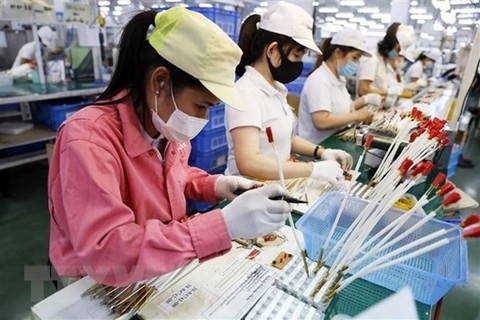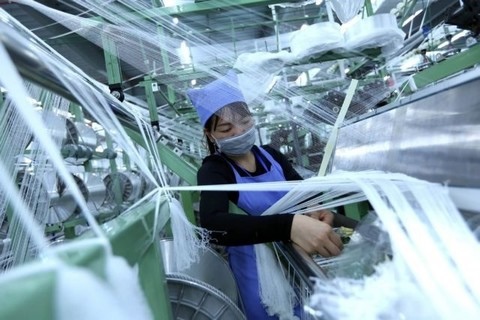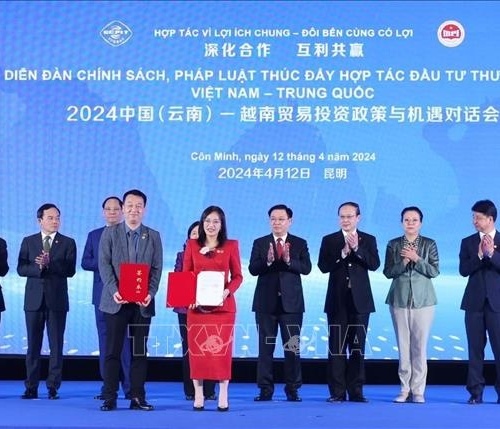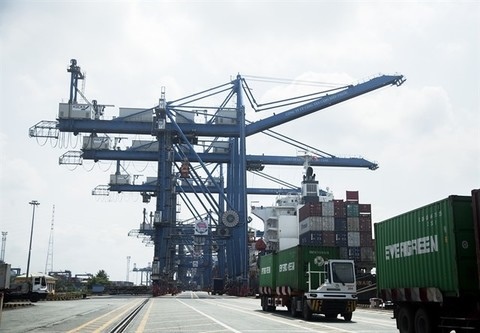Mekong leaders envision a shared and prosperous future for the region
Mekong leaders envision a shared and prosperous future for the region
At the World Economic Forum on ASEAN on September 11-13, top leaders of the five member countries of the Mekong region, including Vietnam, Cambodia, Laos, Thailand and Myanmar, affirmed their commitment to shared prosperity and peace.
Vietnam’s Prime Minister Nguyen Xuan Phuc said that with a shared history and culture, the Mekong countries envision a joint, interconnected future, and one agile enough to adapt to global shifts.
“We can no longer depend just on natural resources,” said the PM, “But on innovation, reform, creativity and those new forms of connectivity that will help the Mekong countries connect in a more dynamic way and create a economic driver for our countries.”
Highlighting the place of the Mekong countries within the ASEAN regional bloc, he said that ASEAN’s principles of “unity in diversity” are also clearly reflected in the Mekong framework: “We have differences in our starting points and history, but our common vision is peace, stability and integration. Now, especially with the advent of the Fourth Industrial Revolution, connectivity and sustainability are also very important.”
Combined, the Mekong countries have a GDP of $800 million. If it were one country, the region would be the sixth-biggest country in the world and a member of the G20. Yet despite its significant potential, inter-Mekong trade remains low at just 8 per cent and there are concerns that similar exports, such as rice, could create fierce competition among the five countries.
Aung San Suu Kyi, State Counsellor of Myanmar, stressed that Mekong countries are focused more on complementarity than competition. “I think we could work together and not just make this a commercially, economically vibrant region, but a region that could be a lesson in how we make our complementarities and common challenges strong, to keep things together, and even to make our competition a healthy kind, which will help us to progress,” she said.
Discussing physical connectivity in the energy space, Prime Minister of Laos Thongloun Sisoulith agreed with the shared Mekong framework, saying the economic “bloodline” should be both utilised and protected.
“We should protect the river and think about sustainability, where all member countries protect the environment and we develop it together,” he said, “We should not think that one country is trying to use the river for its own interests only.” The recent dam collapse, he admitted, means that any future construction will require careful planning and design, and assistance from both regional and international stakeholders.
Beyond physical connectivity in terms of water, energy, transport and people, Samdech Techo Hun Sen, Prime Minister of Cambodia, stressed the need for innovative solutions to shared future challenges.
“We have to catch up, I see that for our Mekong countries, the important thing is the connectivity in order to guarantee that all our countries get together in a convenient way, physically and digitally,” he said. In the event of a natural disaster such as a regional flood, he noted, countries such as Cambodia, Vietnam and Thailand should have agreements in place to deal with cross-border management, encompassing telecommunications and emergency evacuation plans.
Towards that goal, PM Phuc said that transformational changes are underway: Vietnam, Laos and Cambodia, for example, all share a flat roaming rate for telecommunications.
The challenge, noted Suu Kyi, is ensuring that increased connectivity is empowering.
“Is the Fourth Industrial Revolution going to bring us closer together, or to drive us further apart?” she wondered, “I am confident that the Mekong countries will take the path to bring us closer together, because we have shared cultural values and historical experiences and that has helped us to generate empathy, and understand each other.”







